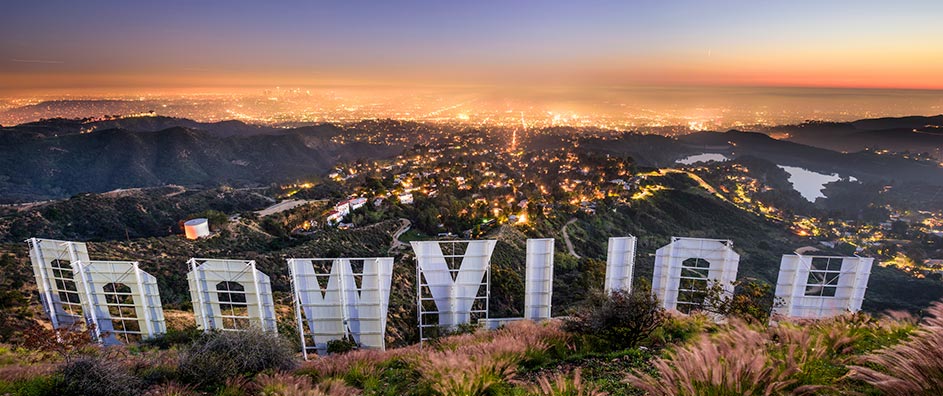In the complex tapestry of modern society, trust serves as both a foundation and a fractal, reflecting the intricate dynamics of human relationships and societal structures. In Los Angeles, a vibrant metropolis embodying a convergence of cultures and histories, trust becomes a pivotal element in addressing the vicissitudes of politics and the pressing need for racial healing. Baha’i teachings offer profound insights into the interplay of these themes, suggesting pathways to reconciliation and unity amid diversity.
At the heart of Baha’i philosophy lies the principle that humanity is a single, interconnected entity. This tenet posits that every action, thought, or word reverberates beyond the individual, influencing the broader community. Trust, then, must be cultivated not only as a personal virtue but as a communal asset. Like the roots of a great tree entwining below the surface, trust grows quietly, unseen yet vital for the tree’s stability and nourishment. In a city like Los Angeles, where racial and ethnic divisions may prompt fissures, fostering trust can act as a salve, healing wounds inflicted by misunderstanding and mistrust.
Baha’i teachings urge individuals to transcend divisive identities and embrace a broader human kinship, echoing the metaphor of the garden. Each flower represents a unique individual with distinct attributes contributing to a shared beauty. When the flowers bloom harmoniously, they create a mosaic of colors and fragrances, symbolizing how diversity can enhance community strength. Acknowledging this diverse beauty is crucial in political discourse, where recognizing as well as valuing different perspectives can foster mutual respect and cooperation.
Political systems, particularly in a city with such a rich plurality as Los Angeles, often grapple with competing interests that can lead to fragmentation. The application of trust within politics is not merely an aspirational concept but a fundamental necessity. Political leaders, as stewards of the collective will, bear the responsibility of cultivating trust through transparency and integrity. Baha’i teachings advocate for a governance model predicated on consultation—an engaging process that helps to synthesize diverse viewpoints into collaborative solutions. In such a context, politics becomes less a zero-sum game and more an opportunity for synthesis, echoing Paul Klee’s notion that “drawing is taking a line for a walk.” Here, the journey of dialogue creates pathways toward communal understanding and collective action.
The concept of justice holds a preeminent place in Baha’i doctrine, serving as a cornerstone for both societal equity and personal integrity. In Los Angeles, where economic disparities often manifest along racial lines, the call for justice resonates deeply. Trust is inextricably linked to the perception of justice; when individuals believe that justice prevails, trust flourishes. Conversely, perceptions of injustice precipitate mistrust and estrangement. Thus, Baha’is are encouraged to champion social justice initiatives that foster not only equality but also inclusivity, ensuring that all community members see themselves as integral parts of the societal fabric.
Racial healing, a profound and necessary endeavor, necessitates a collective acknowledgment of historical injustices. By adopting a lens informed by Baha’i teachings, communities can engage in restorative practices that promote understanding and empathy. This process involves a candid examination of the past, combined with a commitment to a shared future of equity and cooperation. Symbolically, the act of planting seeds in a garden can be likened to this journey; it requires nurturance, such as dialogue and education, to foster growth and healing.
Moreover, the Baha’i perspective emphasizes the potency of education as a transformative force in racial healing. Education facilitates awareness and understanding, empowering individuals to confront biases and dismantle the barriers that perpetuate division. This not only enhances individual agency but also cultivates a culture of trust where knowledge is shared freely, enriching the community as a whole. Baha’is view education as a universal right, underscoring its role in leveling the societal playing field and enabling all individuals to contribute to their communities meaningfully.
In addressing trust, politics, and racial healing, Los Angeles stands at a pivotal crossroads. The Baha’i teachings advocate for a future where systemic inequities are dismantled through collective action, fostering a society where trust is not a commodity but a natural component of human interaction. The road to disintegration is coined by mistrust and fragmentation; conversely, the avenue toward flourishing unity is paved with mutual respect and empathy.
As Los Angeles navigates its complex socio-political landscape, the challenge remains: how to transform trust from a fragile ideal into a formidable reality. By embracing the holistic philosophy of the Baha’i teachings, individuals and communities can engage in the arduous yet rewarding work of building bridges across divides, thus crafting a legacy of compassion and cooperation. The call to action is clear: cultivate trust, engage in meaningful political discourse, and commit to the healing of racial wounds; together, this can aspire to paint Los Angeles as a canvas of hope, interconnectedness, and unity.
